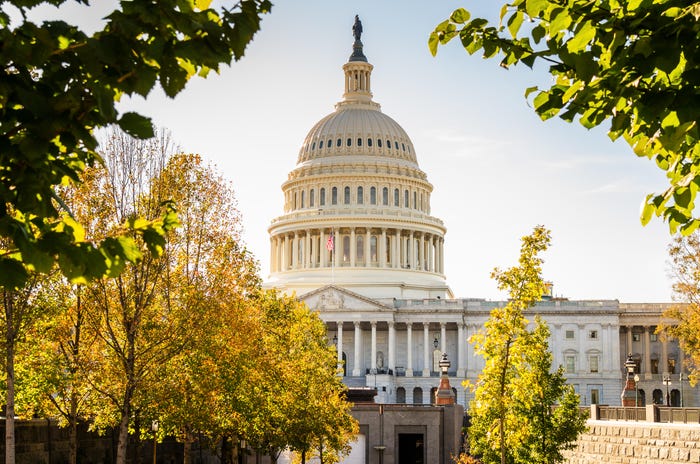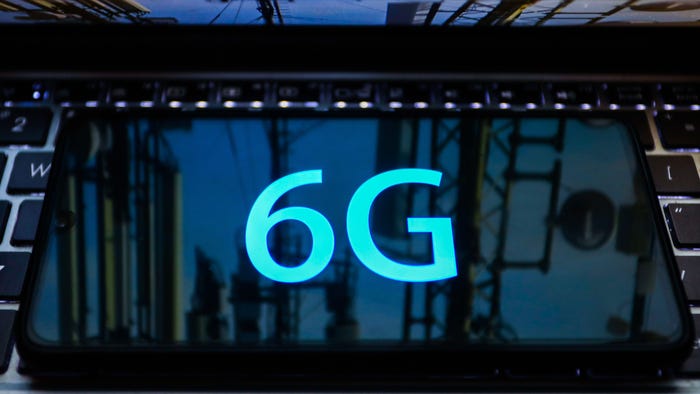Trump names Brendan Carr as next FCC chairmanTrump names Brendan Carr as next FCC chairman
Republican FCC Commissioner Brendan Carr will become the next chairman of the agency after Donald Trump is inaugurated as president in January, the president-elect announced on Sunday.

Republican FCC Commissioner Brendan Carr will become the next chairman of the agency after Donald Trump is inaugurated as president in January, the president-elect announced on Sunday.
“Commissioner Carr is a warrior for free speech and has fought against the regulatory lawfare that has stifled Americans’ freedoms and held back our economy,” according to Trump’s statement. “He will end the regulatory onslaught that has been crippling America’s job creators and innovators and ensure that the FCC delivers for rural America.”
Carr, 45, has been a member of the FCC since August 2017, when he was confirmed by the U.S. Senate after being nominated by then-President Trump to fill the position vacated by former FCC Chairman Tom Wheeler—a Democrat appointee—when Republicans could claim the majority. Carr began his first full five-year term on the FCC in 2019 and the Senate confirmed him to serve a second five-year term in September 2023.
Carr’s current FCC term is scheduled to expire in June 2028. As a sitting FCC commissioner, Carr can become FCC chairman without a new Senate confirmation proceeding.
Carr had not issued a formal statement about the FCC chairmanship on the FCC website as of this article being posted, but he responded to the announcement on his X—formerly Twitter—account.
“Thank you, President Trump!” Carr said in the post. “I am humbled and honored to service as Chairman of the FCC.
“Now we get to work.”
Carr followed this initial post with others that indicate some of the key tenets of his chairmanship of the FCC:
“We must dismantle the censorship cartel and restore free-speech rights for everyday Americans.”
“Broadcast media have had the privilege of using a scarce and valuable public resource—our airwaves. In turn, they are required by law to operate in the public interest. When the transition is complete, the FCC will enforce this public-interest obligation.”
“The FCC’s most-recent budget request said that promoting DEI was the agency’s second-highest strategic goal. Starting next year, the FCC will end its promotion of DEI.”
“Democrats have been in charge of the Administrative State—the alphabet soup of agencies in D.C.—for at least 12 of the last 16 years. Over those 12 years, government control has increased and your freedoms have decreased. It is time to flip the script in Washington.”
Carr, who was appointed by Trump as the FCC’s general counsel in early 2017 after previously serving as an aide to Republican FCC Commissioner Ajit Pai, has received significant attention recently for authoring a chapter in the Heritage Foundation’s Project 2025 and for supporting a ban on the TikTok application.
In the wireless community, Carr has exhibited support for the industry’s tower climbers, even climbing training tower himself. Recently, Carr voted for the FCC’s new 4.9 GHz rules that call for an unnamed band manager to reach a spectrum-sharing deal with the FirstNet Authority.
Current FCC Chairwoman Jessica Rosenworcel congratulated Carr on the appointment by Trump.
“I want to congratulate Commissioner Carr on the announcement by the President-elect that he will serve as the chairman of the Federal Communications Commission,” Roseworcel said in a prepared statement. “This agency has responsibility for communications technology that is vital for everything in modern civic and commercial life.
“It is also fortunate to have extraordinary expertise thanks to the hardworking public servants who labor faithfully to implement the law and help build a digital future that works for everyone. From his time here, I am confident that Commissioner Carr is familiar with the staff, the responsibilities of this new role, and the importance of continued U.S. leadership in communications.”
Rosenworcel’s statement did not include any indication about her plans for the future, but FCC chairs historically have resigned as head of the agency shortly after the inauguration of a new president.
FCC Commissioner Nathan Simington—the only Republican other than Carr on the FCC during the past four years—expressed optimism about Carr serving as the new FCC chair.
“I want to extend my heartiest congratulations to Chairman-Designate Carr on his well-deserved nomination,” Simington said in a prepared statement. “He will be a great and transformative Chairman, and I look forward to serving alongside him on the Carr Commission!”
Democrat FCC Commissioner Geoffrey Starks echoed this sentiment.
“I congratulate my friend and colleague Commissioner Brendan Carr on the announcement that he will serve as the next Chairman of the Federal Communications Commission,” Stark said in a prepared statement. “Commissioner Carr is a dedicated public servant and a recognized leader on the many issues before the Commission today, and I deeply respect his work. Most importantly, we have worked together on numerous bipartisan priorities, including national security, connectivity, and media policy, and I look forward to continuing that important work.”




